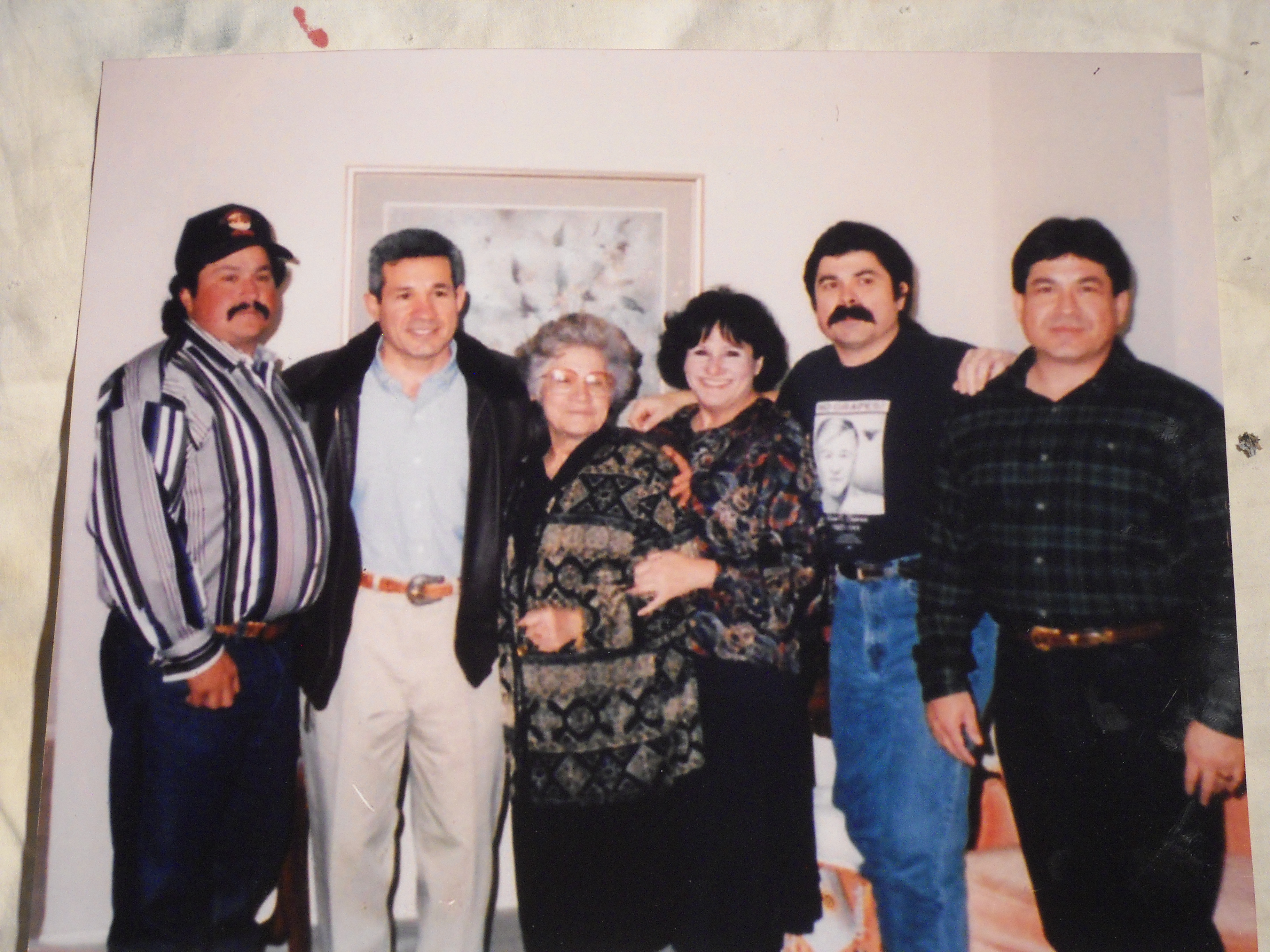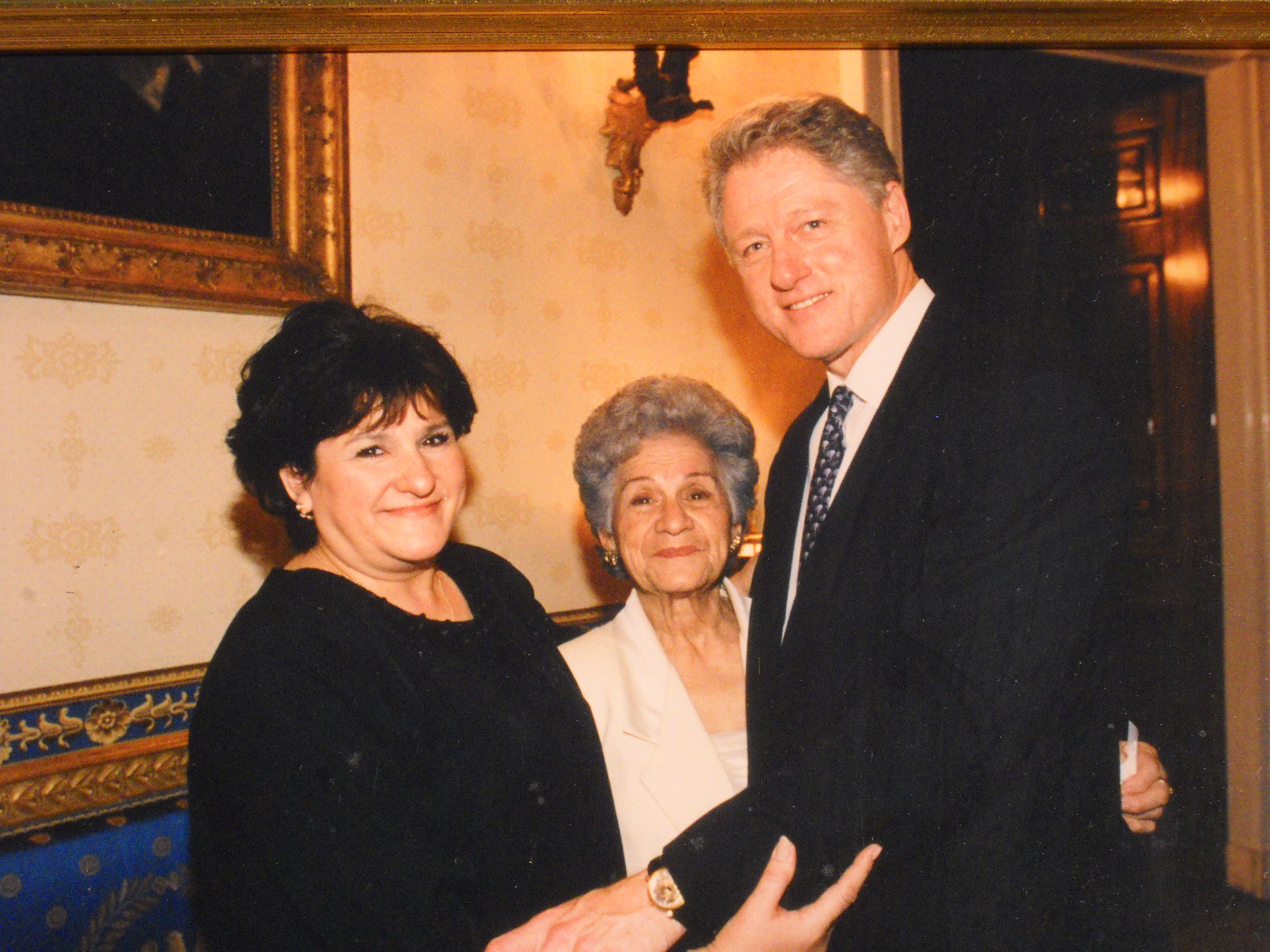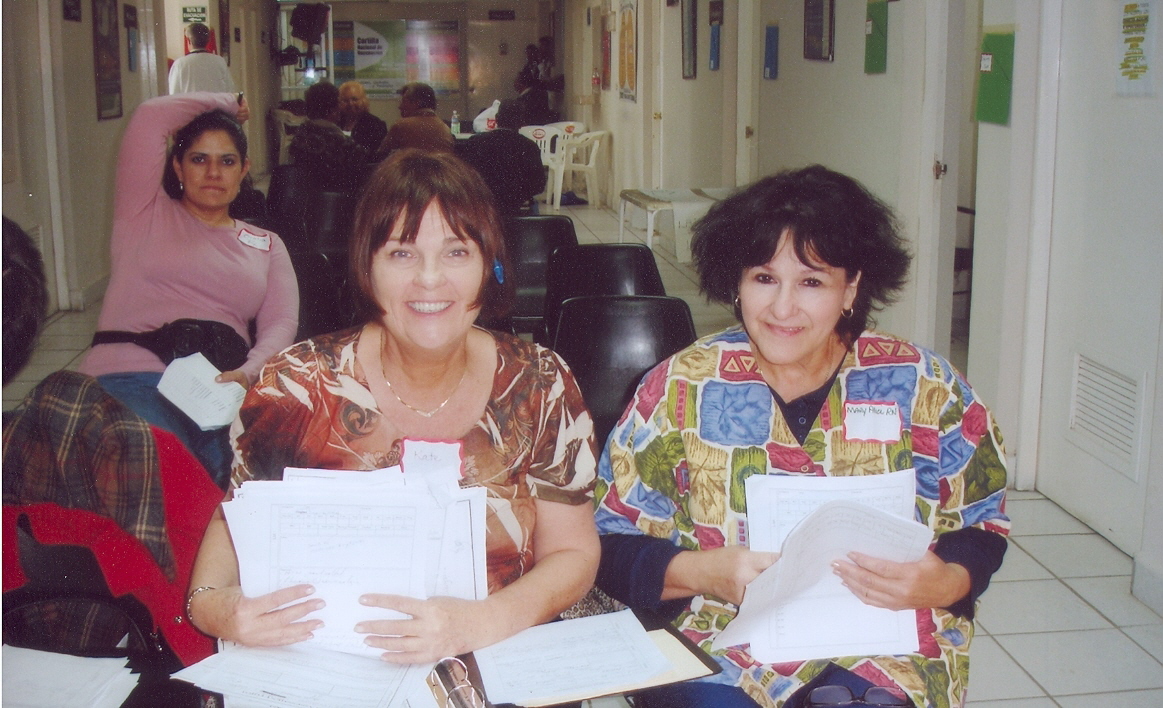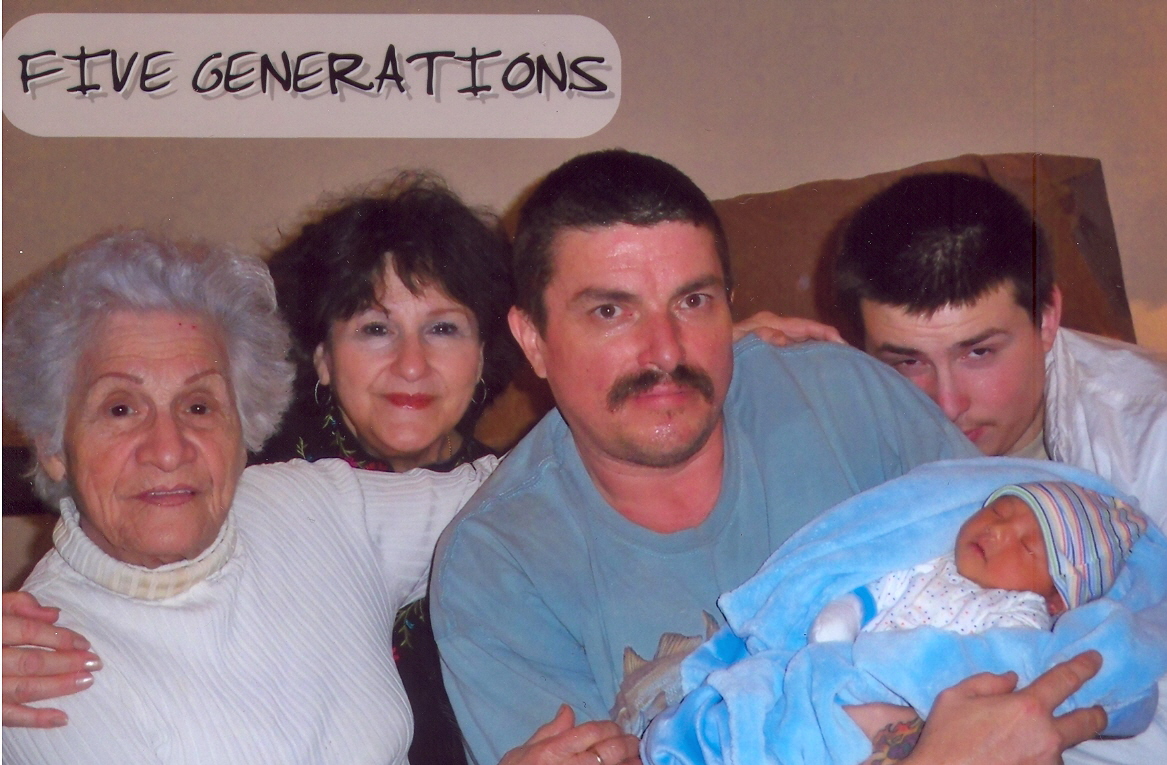TRANSCRIPTION
What did you do for entertainment during your high school years? If you went out, did your parents insist on a chaperone?
Well, let me see, in my freshman and sophomore year I was in the choir and I was in the pep squad so we cheered for the La Salle boys school- that was almost every weekend when they had football. So my parents and my cousin's mother, my Aunt Janie, would take turns taking us to the games and there wasn't an instant when we ever went out by ourselves. We always had a chaperone. Then in my junior and senior year, of course in the summer, I would go to summer school on purpose because I knew I needed math for college for nursing and I just was not getting anything geometry from Sister Scholostica so I did it on my own, Algebra, and I really learned it well so I was glad about that. My junior and senior year they started a program in my junior year where they would have students cleaning. They would be able to work and get $1.25 an hour. So, the programs they had were at St. Peter-St.Joseph's orphanage so I would get out of school and go across to Saint.Peter/Saint.Joseph's and I started ironing the girl's clothes after school for $1.25 an hour. And then on the weekends, Mother Raymond, who was in charge of the orphanage, asked me what I was going to do when I finished school and I said I wanted to be a nurse and she said do you want to start working at Santa Rosa as a nurses aid and I did so during the weekend I would work at Santa Rosa in the adult hospital from- it was usually 3pm to 11pm and my dad would take us. Some of the girls in the orphanage also worked so my dad was the one who would take us and bring us. So starting in my junior year when I was 16 I was holding two jobs and my senior year I continued doing the same thing and I was also senior class president I was also in the nation honor society and so I kept very busy and sometimes they would have school dances and my dad would take us and my aunt would bring us and my aunt would take us and my dad would bring us, but most of the times they actually waited outside for us. We were never allowed to go anywhere by ourselves.

How did your parents support the family?
Do you mean financially?
Yes. What were their occupations?
Well, my dad had come back from World War II with a leg that they wanted to amputate. He was wounded and he didn't want them to amputate the leg during war so it was really hard for him to really have a job. All the time he was wearing a brace but he was getting a pension from the V.A. from being in the service and he knew how to do upholstery because there was an upholstery shop next to our house and he learned by watching them. So all my checks that I would get from the hospital and the orphanage, I would sign over to my parents and he was able to buy a big upholstery machine so that he could do upholstery in our garage-so he did that. Plus my mother started cleaning homes and saved her money, put herself through Beauty College, and then worked for a while, and then opened her own little beauty shop where she still has it- she's 89- and she still works at the beauty shop she opened years ago. This was how my parents worked and while my mother was working, my dad would take her and bring her because she never learned to drive. My dad would do a lot of the household chores with us and I always saw them working together. If my mother wasn't at home, my dad would cook. If my dad was doing something, my mother would cook. So they really worked together to make ends meet and then they started buying, like if there was a house for sale, they would buy it and then they would rent it, and they would get an income and that house would pay itself off. Then they continued to get an income so that we were all actually able to get a good education.

How did your chores differ from your brothers?
Well, it was a little bit different because we are all 4 years apart. So while I was in high school, my brother would be in college so I was in high school, my brother, younger brother four years, would be too young to do anything, he would be in grade school. I had a lot of cleaning responsibility at the house. They would help my dad with the yard work. Holding two jobs and going to school and still making the national honor society kept me real busy and so I guess that was the most important thing-for us to finish school and do well.
How did you parents feel about your accomplishments?
Well, I think my parents were very proud of all of us. We all feel like we all accomplished educationally well in everything that we all did. They were very proud of us. They were very encouraging.

In what ways did your brother's departure to Vietnam affect your family?
Well during some parts I remember it was really, really hard for my mother--especially. I know she would write to him almost every single day. Knowing that the Vietnam War was going on and my brother was there, it was always really scary. He was wounded over there and received the Purple Heart. I remember when…when they came to the door …I mean it was really, really frightening for them. They thought he was killed. And, I'll probably answer the next question, when he did come back from Vietnam; we had a really big celebration with all family and friends there. It was really a big celebration that he had completed his term in Vietnam.
Does this include your neighbors?
It was mostly family, friends, and neighbors. Yes, I remember a big party. Everybody was there because our family is very close. My father's side is very close and my mother's side is very close; my parents still were very close. So everybody would be praying for my brother to come home safe and when he did, we celebrated.

Did Frank pursue politics when he returned from Vietnam?
When he first returned from Vietnam--because he left when he was 17 he was very young--when he first came back, he started going to St. Mary's University and then transferred to Berkley. He pursued his career and got his Doctrine of Jurisprudence, became an attorney, and stayed in the Marine Reserve. So he continued his military career as well as a career being an attorney. He practiced for a while and he saw a lot of deficiency in our district that he wanted to change. Then he started pursuing a political career and he ran against Dramburger, who had been an incumbent for years on the south side. And he won, so he was in the House of Representatives--you can't quote me on the years and the times--my other brother's going to write his biography and will be more specific on how long he…
Which brother?
My brother Juan who is four years younger than I am.
He's going to write a biography?
He's going to write my brother's biography, yes. But anyway, Frank did pursue a career in politics. He was in the House of Representatives for I think ten years and then ran for Senator and became a senator. During that time, he went to Harvard and received his master's in Public Administration from Harvard. And then when they redistricted, he ran for Congressman and he won. He also went to Yale and received his Master of Law, which is above the Doctrine of Jurisprudence; then was in Congress and served as a congressman. So yeah, he pursued the political world until he died.

What types of challenges did you face as a woman in the medical field?
I am going to answer that by also answering other questions about changes that I have seen... that I saw… having worked there for forty years. I saw a lot of changes in the administration and in the way nurses were being portrayed which I do not like. In the media and in the movies, they always portray nurses with their short skirts and looking for doctors. When I first started working, I became an R.N. (this was in 1971, November 1st, 1971), we were expected to--if a doctor came in-- we would get off our chair and give it to the doctor. We were to pull out their chart and we were to hold the chart as they made their rounds and follow the doctors around. Anything they said, we followed orders-nothing was challenged. Doctors, a lot of them, could get away with a lot of innuendos. As the years progressed, we had different directors of nursing. A lot of them had better ideas of what nurses should do and we became more of a part of it. We had nursing diagnosis and we collaborated with the doctors on different patients. Doctors would come in and sit down and would actually speak to the nurses. They would get their own charts. As a nurse, I would like to make rounds because I wanted to see what the families were told, the different orders they were writing. We were able to challenge them and ask them (the doctors)"Well, why are you ordering this?" This patient has an allergic reaction to such and such, and I think it's an ingredient in one of these drugs. And they started listening to us. So nursing has now become well-collaborative and the doctors and nurses actually sit down and talk about the patients and I don't know--we are getting a better outcome.


How did this change occur?
Well, I think what happened is that doctors started to realize that they would come and see their patients for maybe, let's say, fifteen minutes or maybe twenty minutes or less a day (if they came and it wasn't a weekend). Nurses are with the patients for eight to twelve hours a day. We were able to see the progress and any changes and any problem that would come up with the patient. Any questions that the parents had (we had more contact with the parents) and the families--all their needs-- they started realizing that if they listened to the nurses, I mean, it's just that they were able to draw a lot of information from what we said and to be able to care for the patients better. I don't know if they started teaching it in the medical school, but I could see the big difference when the doctors would be more respectful of the nurses and draw more information from them and asked their opinion. It just became so different that we weren't just being talked down to, but that we were an important part of the patient's recovery.


How has medical technology transformed nursing over the years?
I have seen changes in nursing care because of the technology. An example of that is when I first started working, I had patients that had Scoliosis -they have a curvature of the spine. They used to put these patients in Halo traction and Circulo electrical beds. Then they would insert these rods (depending on what doctor had founded-- like a Harrington rod-- invented by Doctor Harrington) and after that was inserted surgically into their spine, they had to be on bed rest--only leg rolls from side to side for two weeks. Now patients go in and have their surgery and they get up the next day. This is the total difference and it's the same with any other surgery. Patients used to come in to have a hernia repair and they would stay for maybe two to three days. Almost the majority of surgeries that we used to have (that would stay say approximately two to three days) are now being done as an outpatient-on an outpatient basis. They go home the same day and so we have seen a big change. Even with the open heart patients with the kids. You see them back up walking in two days and going home in maybe three days. So the advance in technology has made a big difference for the patients and for the nursing care.
How would the staff cope as a team when news of life-threatening illnesses became known about the patients?
Well, being part of the service in the unit I worked in (an outpatient day procedure) was taking care of the children who have leukemia and cancer. They would come in every Tuesday and do their bone marrow biopsies and spinal tap with their chemo placed into their spine. This is part of their protocol- part of the recipe for treatment. So we saw a lot of patients come in (being diagnosed in the middle of their diagnosis) and some of them survived and a lot of them did not. The children that did not survive--we could see them when they were declining-- and we almost could tell when a patient was going to survive or not. And when you became very close to them and their families because we would see them every week, it became challenging and it became difficult. And if you had a child of your own at the same age, it was even harder as a nurse. So, what we would do as a team (we were a small team of nurses that had worked together for so long), we did a lot of talking about it , how we felt, and what we could do to help the patient, the family, and ourselves in talking about it. It was just being able to talk to someone else about everybody having the same kind of feelings-that really helps. In my area, with such few nurses, we were able to sit down between our patient care and talk about it.
Do you have any additional memories you would like to add?
Growing up, I know a lot of people that would say, "Oh we were so poor/we were so rich. I never knew the difference of being poor or being rich because all of our basic human needs were met. And that was we had a roof over our heads, we had shelter, we had food. We had warmth, love, and education. With all those things and knowing that our family worked together, you didn't want a lot of things and you weren't envious of other people's things. We never knew we were poor, we never felt like: Oh God, I'm so rich. So, if everybody knew that when your basic needs were being met, you would be very content. That was very important. Knowing that our parents were very supportive, that education was very important to them, and that they sacrificed for us to go to school. And we weren't given everything that we wanted-we worked for it. That's very important. A lot of people think that you have to buy your children everything just so that they would be happy when all they want is for you to spend a little bit of time with them and know what's happening in their lives and being involved. That makes a big difference in the way your children are going to grow up. So consequently, my brother Frank went on to become, I feel, a great congressman. I went on and had my forty year career as a Registered Nurse. My next brother has his Master's degree in Education and teaches at in Palo Alto. He has ten years there now and he is teaching Music and Cultural Studies. My next brother Ernest has his Master's degree and he teaches Special Education and he is a coach. My last brother does construction-that's building homes and everything-he is really good at construction. So our family, as diverse as it was, went onto do what we wanted to do because of my parents and their support. And knowing that we always had something to eat, a place to sleep, and all the support and love that our parents gave us, those things are a good recipe in life and to bring up children. And bringing them up in a positive environment with parents who care, an extended family who is involved and caring, and making sure they have food, warmth, and shelter-those things are more important than just buying them things. So with that I will close.



